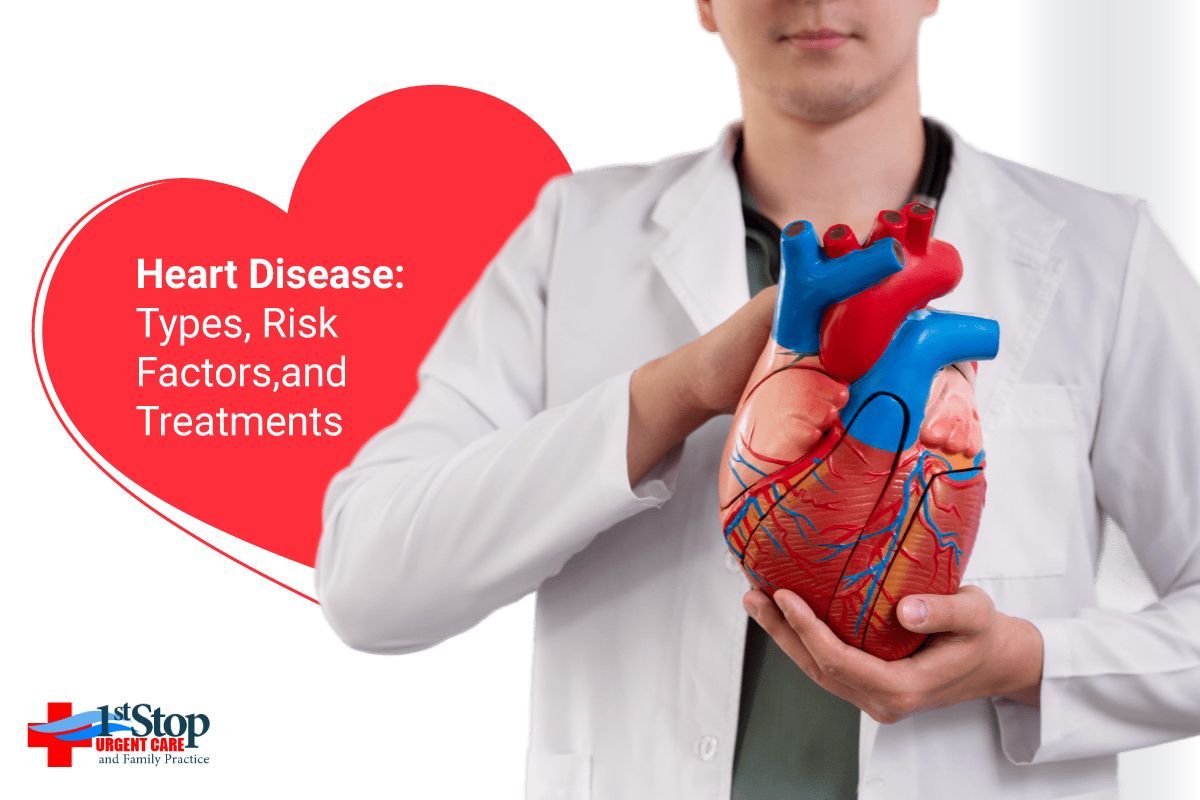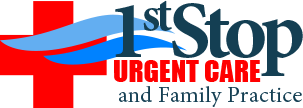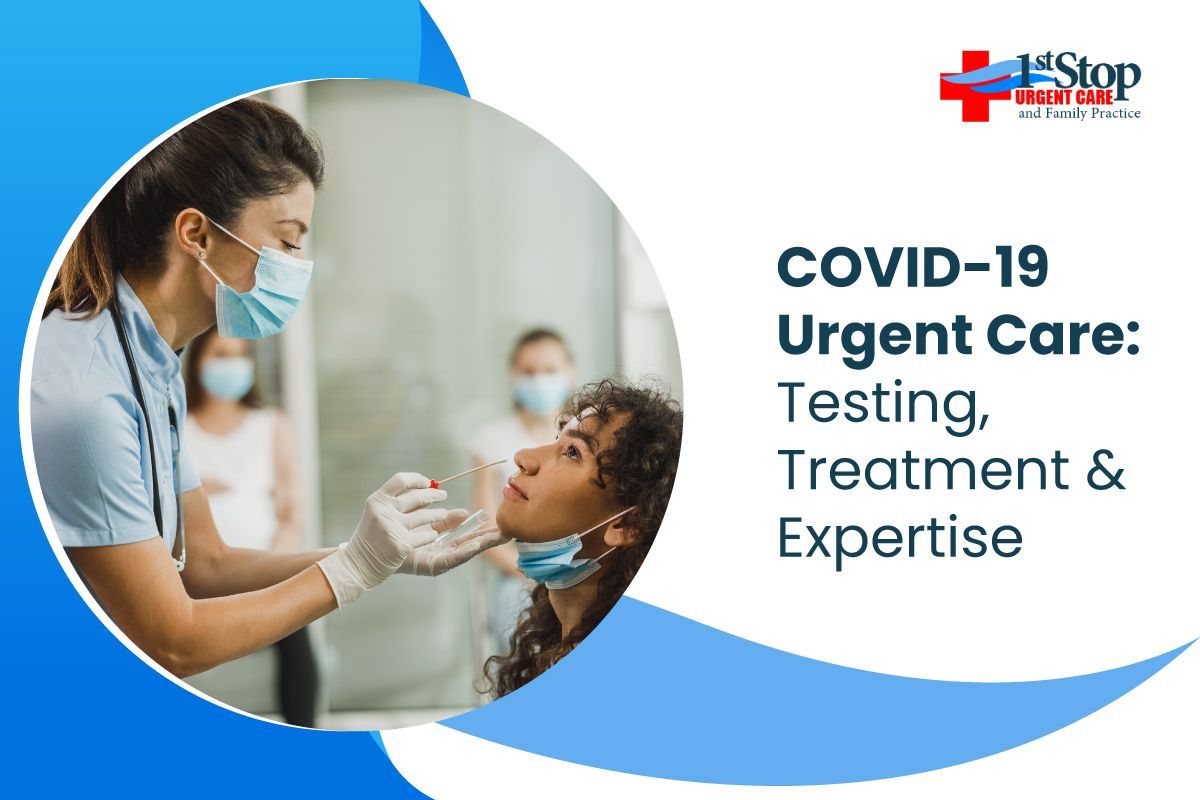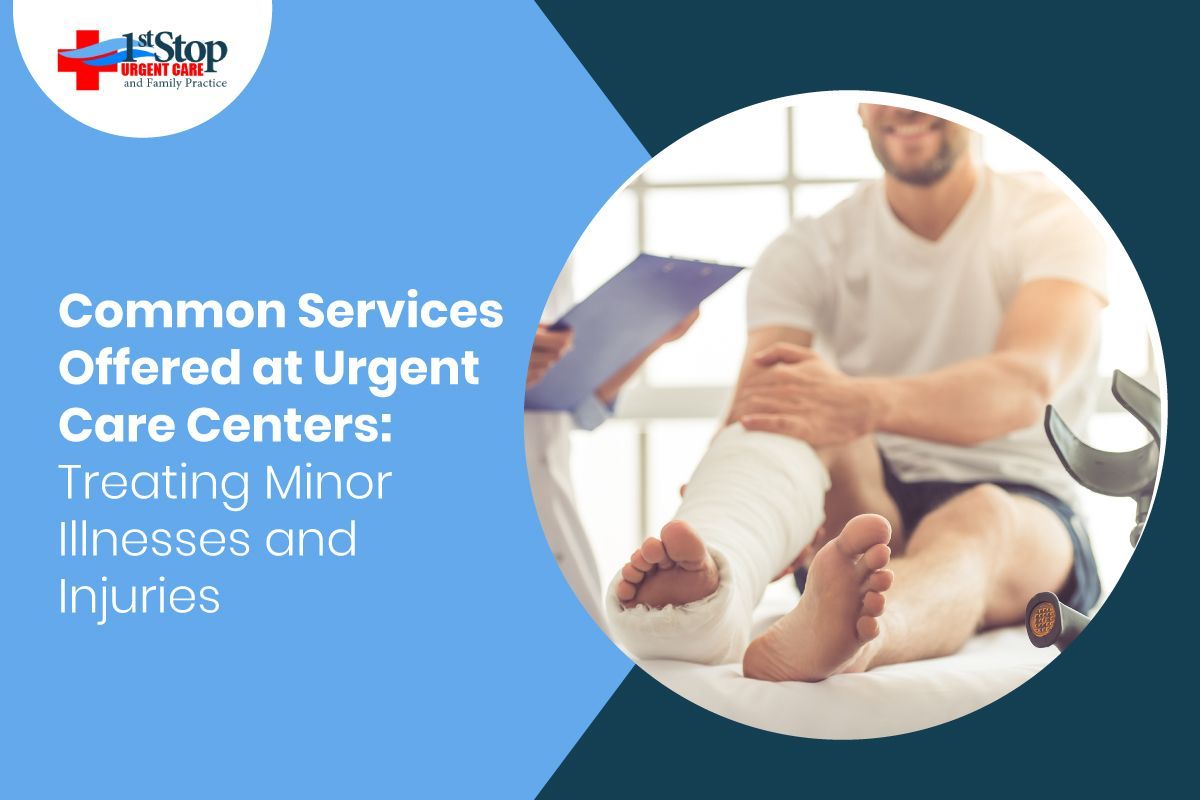Heart Disease: Types, Risk Factors, and Treatments

Heart disease refers to any specific cardiovascular condition that affects the heart. In 2019, it was reported that coronary heart disease is the world's biggest killer. Studies say that approximately 110 million men and 80 million women suffer from heart disease. Moreover, anybody can develop a heart disease regardless of age, gender, and ethnicity.
Although the rising number of cases seems overwhelming, heart disease is treatable and manageable. This blog post will tackle the essential facts about cardiovascular diseases. If you want to learn more about heart disease: types, risk factors, and treatments, you are on the right page.
So, let's dive into our discussion.
What is Heart Disease?
Heart disease refers to many medical conditions affecting the heart and the cardiovascular system. People often think of coronary heart disease when discussing this adverse health condition. However, heart disease can affect several parts of your heart, including the valves, muscles, and electrical system.
Here are signs of heart disease:
- A disease of the heart muscle
- Irregular heartbeats (arrhythmias)
- Blood vessel disease - coronary artery disease (CAD)
- Congenital heart defects
- Heart valve disease
How Common Are Heart Diseases?
Heart disease causes the death of more people in the United States than any other type of adverse health condition. A report in 2020 stated that heart disease is the culprit of 1 in 5 deaths. Out of 700,000 individuals, 380,000 perished due to coronary heart disease.
Understanding the Types of Heart Disease
In this part of the blog, we will focus on the different types of heart disease in detail. How do you know if you have heart problems?
Coronary Artery Disease (CAD)
The most common type of heart disease accepted by medical experts worldwide is coronary artery disease. It is also known as coronary heart disease. This adverse health condition of the heart develops when there is an excessive plaque build-up within your arteries. These plaques often cause your arteries to thicken, narrowing blood flow and circulation.
Plaque contains high levels of
cholesterol. Too much of this substance weakens your heart's capability to absorb nutrients and oxygen. Left untreated, it often leads to weakened heart muscles and irregular heart rhythms (arrhythmias).
In addition, your arteries may rupture due to the blockage from the plaque build-up and stop the blood flow. The results could be potentially life-threatening.
Arrhythmia
Irregular heartbeat is the standard term for arrhythmia. This heart condition occurs when your heart's electrical impulses go haywire. As a result, your heart may beat too fast, slow, or erratically. The types of arrhythmia are:
- Bradycardia - a slow heartbeat.
- Tachycardia - a rapid heartbeat
- Atrial fibrillation - an irregular heartbeat.
- Premature atrial contractions - extra heartbeats in the upper chambers of the heart
- Premature ventricular contractions - extra heartbeats in the lower two chambers of the heart
If left untreated, arrhythmia could lead to fatality.
Congenital Heart Defects
Individuals born with certain heart conditions are more likely to experience cardiovascular disorders in their adult lives. Some cases are only diagnosed upon checkups. Below are examples of common congenital heart defects.
- Atresia: Missing heart valve/s.
- Atypical heart valves: Some do not open properly, resulting in blood leaks.
- Septal defects: A hole develops within the wall between the lower or the heart's upper chambers.
Myocardial Infarction (MI)
Myocardial infarction - a heart attack occurs when the blood flow in your heart gets interrupted. It may destroy a heart muscle as a complication. The common causes of MI are the following:
- Excessive plaque
- Blood clot
The two instances can also coincide. Moreover, you may experience MI when your arteries suddenly narrow, accompanied by spasms.
Dilated Cardiomyopathy
When dilated cardiomyopathy occurs, your heart chambers enlarge, causing your heart muscles to stretch and thin. The typical causes include the following:
- Arrhythmias
- Toxins
- Heart attacks
- Genetic defects
Your heart becomes weaker as a result. Individuals aged
20 - 60 are more at risk of developing the disease.
Heart Failure
Contrary to popular belief, your heart does not stop 100% during heart failure. The heart's function is jeopardized during heart failure, the problems with your heart's pumping and the relaxing process often lead to congestive heart failure. Moreover, uncontrolled high blood pressure is one of the signs of heart failure. As well as arrhythmias and other adverse conditions.
Heart failure is a potentially life-threatening disease. However, treating and managing other heart conditions can help prevent complications.
Common Heart Problem Symptoms
Here are the common heart disease symptoms in women and men, as reported by medical professionals worldwide.
- Fatigue and lightheadedness
- Angina, or chest pain
- Swelling due to fluid retention or edema
- Breathing difficulties
Indicators of Heart Attack
- Nausea
- Fatigue
- Heart palpitations
- Stomach pain
- Breathlessness
- Chest pain
- Arm, jaw, back, or leg pain
- A choking sensation
- Sweating
- An irregular heartbeat
- Swollen ankles
You must go to the nearest ER or call 911 when you experience the symptoms above.
Cardiac arrest may follow if you don't act quickly.
Risk Factors and Causes of Heart Disease
It is typical for heart disease to develop when:
- All or parts of the heart are damaged.
- There is a problem with the blood vessels leading to or from the heart.
- Your heart has an irregular rhythm.
- Your heart has a low supply of oxygen and nutrients.
Genetic Factors include:
- Bad dietary choices
- Diabetes
- Sleep apnea
- A history of preeclampsia while pregnant
- High blood pressure
- A high intake of alcohol
- High cholesterol levels
- High stress and anxiety levels
- Smoking
- A family history of heart disease
- Overweight and obesity
- Leaky heart valves
- Age
- Low activity levels
Treatments
The treatment differs from one person to another, how severe the condition is, and the type of heart disease. Below is a compilation of the ideal treatment options.
Medications
- Antiplatelet therapies - Help prevent blood clots.
- Calcium channel blockers - Helps relax blood vessels.
- Anticoagulants - Blood thinners. To help better blood flow.
- Angiotensin-converting enzyme inhibitors - Expands blood vessels for better blood flow.
- Digitalis - Boosts your heart's pumping action.
- Angiotensin receptor neprilysin inhibitors - Intercepts chemical pathways that weaken the heart.
- Beta-blockers - Lowers blood pressure and heart rate.
- Angiotensin II receptor blockers - Lowers blood pressure.
- Cholesterol-lowering medications - Lowers cholesterol levels.
- Diuretics - Eases your heart's workload and releases excess water from your body.
Surgery
- Device implantation - Uses a device like a pacemaker to support blood flow and regulate heartbeat.
- Coronary artery bypass surgery - Clears blocked arteries and allows better blood flow.
- Valve replacement or repair - Valve repair to regain function.
- Coronary angiography - Helps widen narrow arteries using a stent.
- Repair surgery - Ideal for correcting congenital heart conditions.
Additional Tips
Switching to an active lifestyle with a healthy diet can help prevent and reduce the risks of developing heart disease. Moreover, regular checkups allow your doctor to detect early signs of possible adverse heart conditions.
Keep a Healthy Heart and Live Life to the Fullest
We understand the challenges of living with heart disease. Don't worry. We are with you every step of the way as we provide you with Expert Primary Care. If you are seeking “urgent care near me” in Torrance, California, or 24 Hour Urgent Care In Camarillo, California. Our providers specialize in treating and managing chronic heart disease to give you the life you deserve.
Book an appointment today to find out how our
family practice physician can help with your chronic disease.
1st Stop Urgent Care and Family Practice is a trusted primary care and urgent care center in Torrance and Camarillo. In addition, we provide occupational health services such as drug testing, annual physicals, pre-employment exams, and immigration physical exams, to name a few. We are a more affordable, more convenient, and more friendly alternative to the ER! Call or visit the clinic now!
GET IN TOUCH
Hours:
- Mon - Fri
- -
- Sat - Sun
- Closed
Hours:
- Mon - Fri
- -
- Sat - Sun
- Closed
1st Stop Urgent Care and Family Practice | All Rights Reserved.










